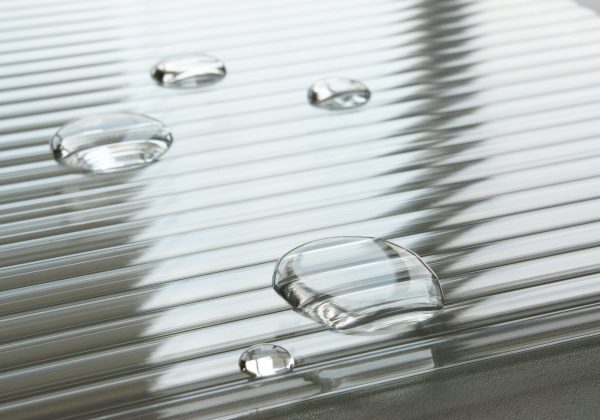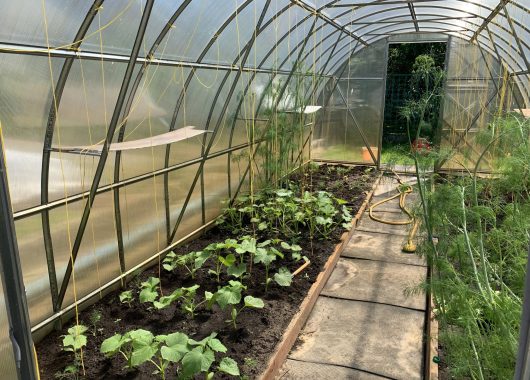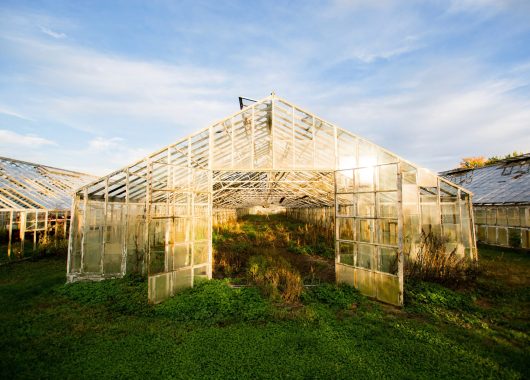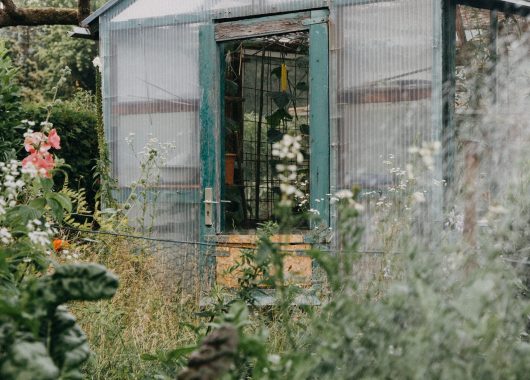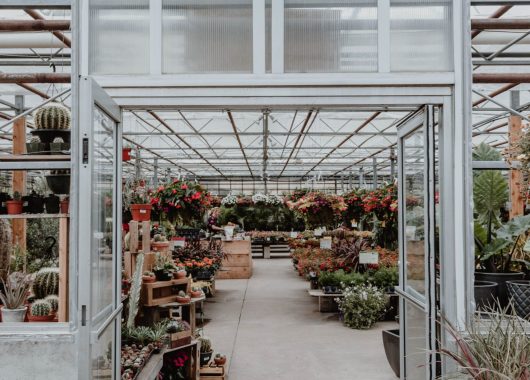As leading providers of custom polycarbonate solutions, we know a thing or two about the versatility of polycarbonate material. Today, we’re turning our focus to an increasingly popular application of this innovative material: polycarbonate greenhouses. A modern take on traditional glass structures, these greenhouses boast remarkable durability, excellent insulation properties, and a host of other benefits, making them a preferred choice for both novice gardeners and horticulture experts.
Polycarbonate is a type of plastic that distinguishes itself from others through its superior strength, flexibility, and resilience. Highly impact-resistant, it proves to be lighter than glass while offering equal, if not better, transparency. But what is it that makes polycarbonate a go-to material for greenhouses?
Polycarbonate sheets used for greenhouses are virtually unbreakable. The durability is such that they can stand up to the harshest weather conditions, be it hail, heavy snow, or high winds. Your precious plants are always well-protected within the robust structure.
And it’s not just about toughness. Twin-wall polycarbonate greenhouses offer fantastic insulation, maintaining the perfect environment for your plants to thrive. By retaining more heat, they help ensure optimal growth conditions, even when the outside temperatures drop.
Furthermore, one of polycarbonate’s innate properties is its UV resistance. A polycarbonate greenhouse filters out the harmful ultraviolet rays while letting in an abundance of sunshine, providing your plants with the necessary light without the associated damage.
Our team at Excelite Plastics is passionate about unlocking the potential of polycarbonate. When it comes to constructing greenhouses, it’s clear that polycarbonate is a material that stands in a class of its own.
Building and installing a polycarbonate greenhouse may seem like a complex task, but with the right tools, some patience, and guidance from us here at Excelite Plastics, you can turn it into a rewarding DIY project.
Step 1: Site Selection
The first step in this process is to select the ideal location for your greenhouse. The site should ideally receive ample sunlight throughout the day, especially during the winter months. An east-facing site that catches the morning sun is usually ideal. The site should also have easy access to water and electricity, as both are crucial for the running of a greenhouse.
Step 2: Ground Preparation
Once you’ve chosen the perfect spot, you’ll need to prepare the ground. This often involves clearing any debris, removing weeds, and leveling the ground. Depending on the type and size of your greenhouse, you might need to lay a foundation. This could be a simple wooden frame filled with compacted gravel, or a more robust concrete slab. Either way, a level, stable foundation is crucial to ensure your greenhouse stands strong for many years to come.
Step 3: Layout Planning
Before the actual construction begins, take some time to plan the layout of your greenhouse. Consider the size and position of the doors and vents, the height of the ceiling, and the orientation of the polycarbonate sheets. Remember, the aim is to maximize light exposure and air circulation while maintaining a controlled environment for your plants.
Step 4: Building the Frame
Now, you’re ready to start building. Our Excelite Polycarbonate Greenhouse Kits come with all the components you need, including the frame, the polycarbonate sheets, and all the necessary hardware. Start by assembling the frame according to the instructions in the kit. While this can usually be a one-person job, some parts might be easier with an extra pair of hands.
Step 5: Installing the Polycarbonate sheets
With the frame ready, you can now install the polycarbonate sheets. This is where the benefits of polycarbonate really shine – despite being as clear as glass, it is much lighter and easier to handle. Fit the sheets into the frame, securing them as instructed in the manual. Be sure to wear gloves while handling the sheets to avoid scratches.
Step 6: Adding the Finishing Touches
With the structure complete, you can now add the finishing touches. This might include installing the door, attaching the vents, or adding any additional features like shades or screens. Once all that’s done, give the entire structure a once-over to ensure everything is secure and properly aligned.
With careful planning and a bit of hard work, you’ll soon have your very own polycarbonate greenhouse ready for planting. There’s nothing quite like the satisfaction of seeing your plants flourish in a space you’ve created. At Excelite Plastics, we’re here to support you every step of the way, helping you turn your gardening dreams into reality.
Maintaining a polycarbonate greenhouse is relatively simple, but there are still certain tasks that need to be performed regularly to ensure it stays in good condition. One of these tasks is cleaning. Over time, dirt and grime can accumulate on your polycarbonate sheets, reducing the amount of light that can penetrate into your greenhouse. To clean your greenhouse, simply use a mild soap solution and a soft cloth or sponge to gently wipe down the sheets. Avoid using harsh chemicals or abrasive materials, as these can damage the polycarbonate.
Another important part of maintenance is checking for any signs of damage or wear and tear. While polycarbonate is extremely durable, it’s still a good idea to inspect your greenhouse regularly for any potential issues. This could include checking the seals around the doors and windows, ensuring the vents and other moving parts are functioning correctly, and looking for any scratches or cracks in the polycarbonate.
Finally, consider the interior of your greenhouse. Keep an eye on the humidity and temperature levels, as these can affect your plants’ health. You might need to install additional ventilation or heating systems to maintain optimal conditions.
Remember, a well-maintained greenhouse will not only last longer but will also provide a healthier environment for your plants. At Excelite Plastics, we’re always available to provide advice and support to help you keep your polycarbonate greenhouse in peak condition.
While polycarbonate greenhouses offer many advantages, like any other product, they’re not entirely without potential issues. However, with the right knowledge and a bit of preventative care, these issues can be easily managed or even avoided altogether.
One of the most common concerns with polycarbonate greenhouses is yellowing of the sheets over time. This is often due to prolonged exposure to sunlight. Fortunately, at Excelite Plastics, our polycarbonate sheets are treated with a UV-resistant coating to slow down this process. Regular cleaning can also help keep your sheets clear and prolong their lifespan.
Another potential issue is condensation, which can occur in any greenhouse but is often more noticeable in polycarbonate structures due to their superior insulation. Too much condensation can lead to issues with mold and mildew. Proper ventilation is key to managing this – consider installing vents or fans to improve air circulation.
While polycarbonate is a robust material, it’s not entirely immune to scratches. Over time, scratches can accumulate and affect the appearance and light transmission of your greenhouse. To minimise this risk, be careful when handling any tools or equipment inside the greenhouse.
On the rare occasion that a polycarbonate sheet does get damaged beyond simple scratches, don’t worry. One of the great things about polycarbonate greenhouses is that individual sheets can be replaced without needing to rebuild the whole structure. At Excelite Plastics, we can provide replacement sheets that are a perfect fit for your greenhouse.
Lastly, while polycarbonate provides superior insulation compared to glass, extremely cold environments may still pose a challenge. You may need to incorporate heating elements during the colder months to ensure a consistent temperature within the greenhouse, thereby protecting your plants from cold stress.
No matter what potential issues arise, remember that Excelite Plastics is always here to provide expert advice and guidance. With the right care and a bit of vigilance, you can enjoy all the benefits of a polycarbonate greenhouse for many years to come.
When it comes to choosing a material for your greenhouse, there are several options available, each with its own set of advantages and drawbacks. Glass, plastic film, and polycarbonate are the most common materials used. However, polycarbonate has increasingly become the preferred choice for many gardeners. Here’s a detailed comparison to help you understand why.
Polycarbonate vs. Glass
Traditionally, glass was the go-to material for greenhouse construction. It’s transparent, allowing plenty of sunlight to reach the plants, and has a certain aesthetic appeal that many gardeners love. However, glass has several significant disadvantages that polycarbonate addresses.
First, glass is fragile. It can shatter under impact, posing a safety risk. It’s also vulnerable to hail, strong winds, and other extreme weather conditions. On the other hand, polycarbonate is virtually unbreakable, standing up to all kinds of weather without damage.
Secondly, glass is a poor insulator. This means that a glass greenhouse will have larger swings in temperature, which can stress the plants. Polycarbonate, particularly in its twin-wall form, offers superior insulation, providing a more stable and beneficial environment for plant growth.
Lastly, glass greenhouses are heavier and require more robust (and often more expensive) framing. Polycarbonate is lightweight, making it easier to handle and cheaper to install. At Excelite Plastics, we’ve engineered our polycarbonate greenhouse kits to be simple and straightforward to install, even for those with little DIY experience.
Polycarbonate vs. Plastic Film
Another common material used in greenhouses is plastic film, specifically polyethylene film. It’s inexpensive, lightweight, and allows a good amount of light to penetrate. However, it falls short in comparison to polycarbonate in a few crucial areas.
Firstly, plastic film has a very limited lifespan. It tends to degrade under UV exposure and can easily tear under harsh weather conditions or even by accident. In contrast, polycarbonate has a much longer lifespan, with sheets from Excelite Plastics being UV-resistant and incredibly durable.
Secondly, plastic film offers little to no insulation. This can lead to significant temperature fluctuations inside the greenhouse, which can be harmful to many types of plants. As mentioned earlier, polycarbonate is an excellent insulator, helping to maintain a stable temperature inside the greenhouse.
Thirdly, while plastic film greenhouses are initially cheaper, they may end up costing more in the long run due to the need for frequent replacements. Polycarbonate greenhouses, while slightly more expensive upfront, are a long-term investment that offers superior durability, insulation, and overall value for money.
In the world of horticulture, polycarbonate greenhouses have emerged as a game-changer. Their combination of durability, insulation, and safety features, all while being lightweight and relatively easy to install, makes them an increasingly popular choice for both novices and experienced gardeners.
With the custom polycarbonate solutions offered by Excelite Plastics, you can design and build a greenhouse that perfectly fits your needs. Whether you’re a hobby gardener wanting to extend your growing season, or a commercial grower looking for a robust, energy-efficient solution, we’re here to help you realize your vision.
A polycarbonate greenhouse is not just a structure; it’s a long-term investment in your gardening journey. It provides a safe, controlled environment for your plants to flourish, and stands as a testament to your dedication to nurturing life. With a polycarbonate greenhouse, the future is not just bright – it’s blooming.

